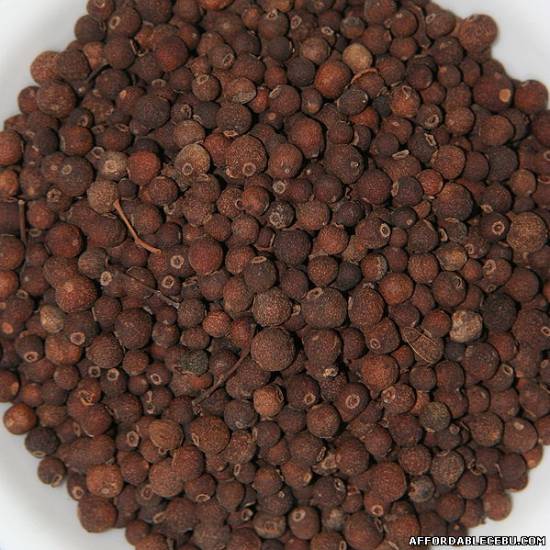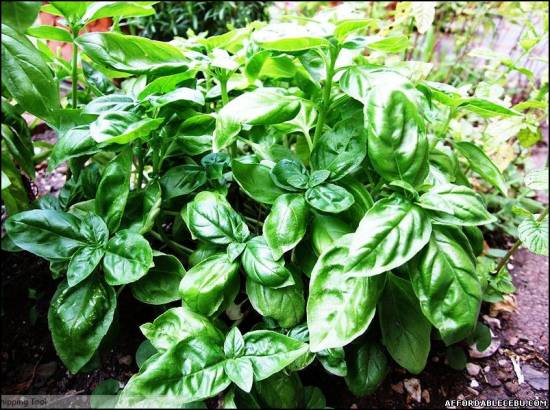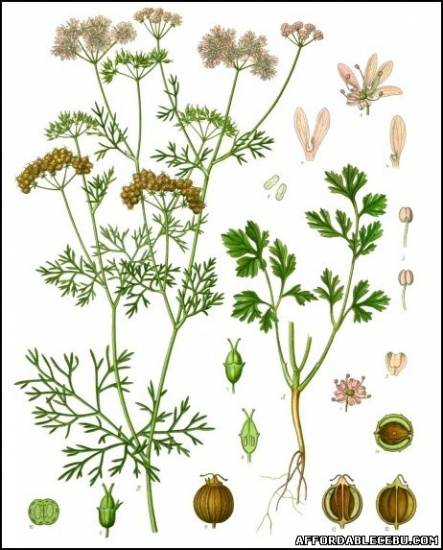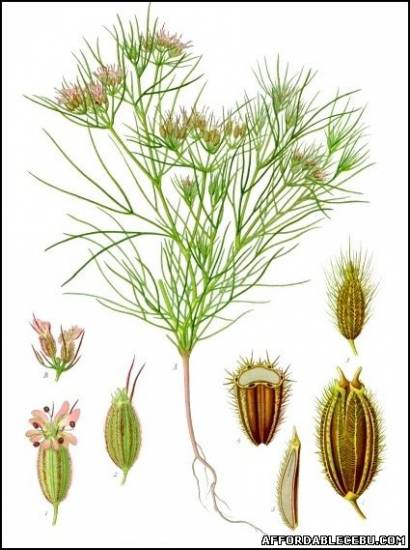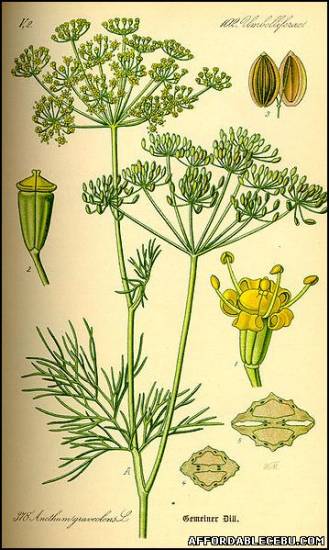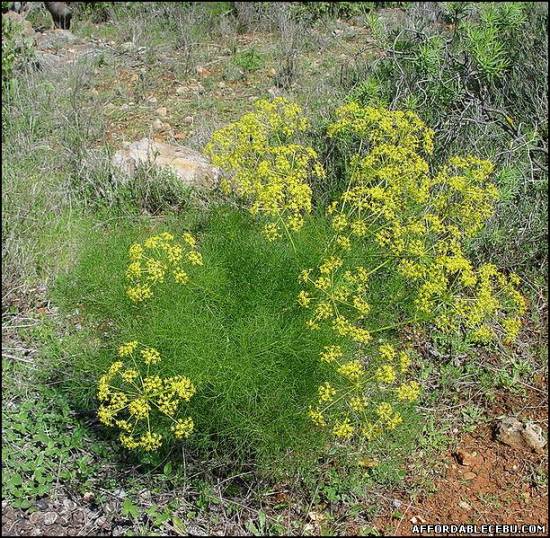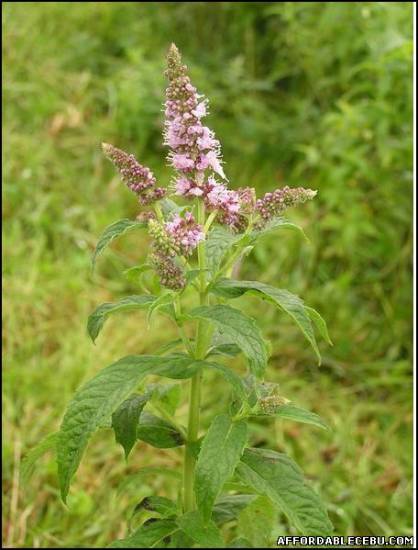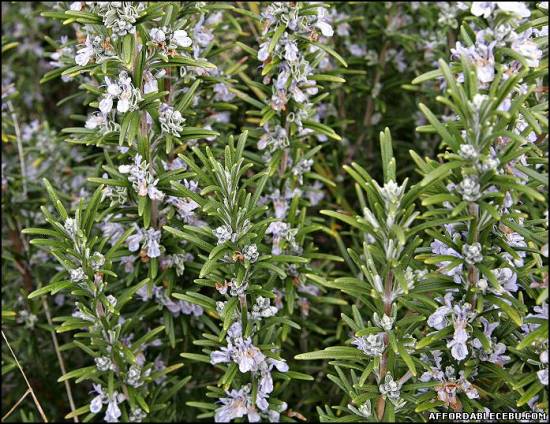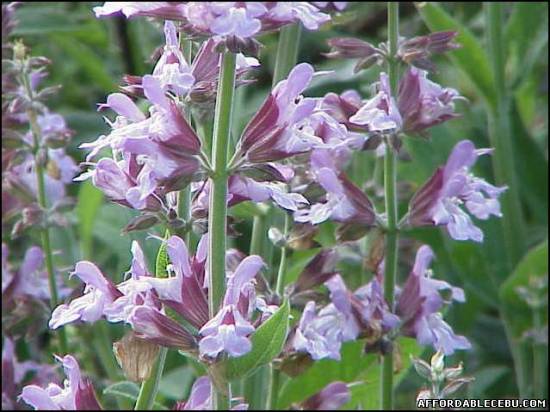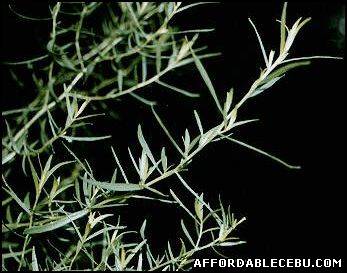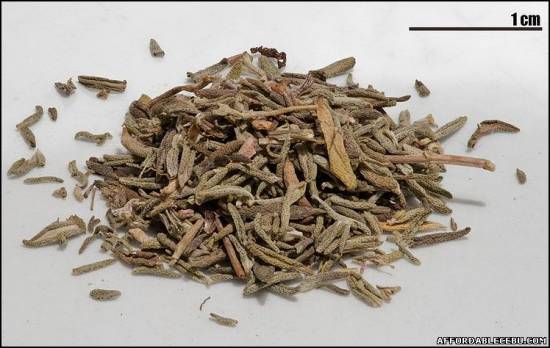1. Allspice. Caribbean folk medicine included the use of allspice to cure colds, cramps, and upset stomach, and the Mayans included it in their embalming ritual. Once introduced to Europe, allspice was believed to bring about good luck and financial prosperity.- https://www.affordablecebu.com/
Picture of Allspice
2. Basil. Native to Africa and India, basil was probably brought from India to Greece by early trade of Alexander the Great. It’s a sacred plant in India, associated with the Hindu goddess Tulasi, and remains a symbol of love, faithfulness, and eternal life. Basil is a symbol of love in Italy and Eastern Europe, thought to be an aphrodisiac and a love potion. The name Basil comes from the Greek basileus, which means "king.” In France, the herb is still known as herbe royale.
Picture of Basil Plant
Basil is also associated with the scorpion, thought to protect against them in some cultures, and attract them in others. In England, it was used to ward off evil spirits and insects. Christians believe basil grew at the sight of the cross, which is why it’s found on the altar and in the Holy Water at the Greek Orthodox Church.
3. Coriander. One of the first herbs grown by the colonists in the New World, coriander is said to relieve abdominal pain. The Chinese associated it with immortality, and the in the Middle Ages, it was commonly used as an aphrodisiac.
Picture of Coriander
4. Cumin. Cumin was used as a bit of marital insurance, carried in ceremonies to ensure happiness and used to keep lovers from straying. It was also used as a remedy for the common cold.
Picture of Cumin
5. Dill. The Greeks saw dill as a sign of wealth. It was used to aid digestion and calm the nerves. Europeans hung it about the home and made it into potions as protection against witchcraft. Bathing in water infused with dill was said to make you irresistible to your lover.
Picture of Dill
6. Fennel. The ancient Greek named this herb Marathon, after the battle that took place in a field of fennel. The Romans chewed fennel as an appetite suppressant, and puritans chewed it during fasting to keep hunger at bay. Fennel was hung throughout medieval homes for luck and to keep away ghosts.
Picture of Fennel
7. Marjoram. Ancient Greeks set their sheep and goats to graze on hillsides of marjoram, believing it made the meat tender and delicious. A favorite herb of Aphrodite, marjoram was once believed to induce dreams of one’s future mate. As a symbol of love and happiness, marjoram wreaths crowned the wedding couple and adorned gravesites. Hippocrates used it as an antiseptic, and the Egyptians used it as a disinfectant. In the Middle Ages, it was chewed to relieve toothaches and indigestion.
Picture of Marjoram
8. Mint. Minthe is the name of Hades’ lover. In retaliation, she was turned into a low-growing herb by his wife Persephone, destined to be stepped upon for all eternity. Despite this mythology, mint has been considered a symbol of hospitality since Roman times. The Greeks believed that mint stirred up bodily lust, and soldiers were warned to stay away from it, lest they lose courage and strength from increased lovemaking.
Picture of Mint
9. Rosemary. The Greeks believed rosemary improved their memory. Students carried it to examinations, and lovers used it to ensure fidelity. The smoke of burning rosemary was used to ward off sickness and evil demons, and the herb was hung around the home for protection and luck. Unmarried women believed the name of their future husband would come to them during sleep if they placed rosemary under their pillow.
Picture of Rosemary
It’s said that Mary placed her blue cloak atop a rosemary bush, changing its white flowers to blue. Still more Christian association says the rosemary shrub will never grow taller than Christ’s height and never live longer than 33 years.
10. Sage. The ancient Greeks, Romans, and Arabs all believed sage to induce immortality and wisdom. Thus, it was used to treat memory loss and a host of illnesses, including fever and stomach disorders. It symbolized domestic virtue and skill, and as such, a house with a garden overflowing with sage was said to contain a strong-willed woman.
Picture of Sage
11. Tarragon. The name, derived from the French esdragon, meaning "little dragon,” is a reference to its serpentine root system, which led medieval healers to use it as a remedy for snake bites. The ancient Greeks used tarragon as a cure for toothaches, and it was considered a calming herb. Also referred to as a banishing herb, tarragon was used as incense while the name of one’s nemesis was written on a piece of paper and then burned.
Picture of Tarragon
12. Thyme. Native to Southern Europe and the Mediterranean, thyme has long been associated with courage. Ancient Egyptians used it in embalming, and the ancient Greeks believed it would make them brave. They burnt it as incense, bathed in it, and used it as treatment for shyness and depression. In the Middle Ages, thyme was given to knights to encourage bravery and hidden under pillows to ward off nightmares. Shakespeare wrote of the fairy queen, Tatiana, who slept in a bed of wild thyme, and English folklore includes recipes using thyme designed to lure fairies out into the open.
Picture of Thyme
| Home » Articles » Health |
Ancient Remedies Through Herbs
|
Herb gardening and cultivation is an ancient tradition. Egyptians, Greeks, and Romans, kept herbs close at hand, growing them in ornamental courtyards, pots, and public areas. In the ninth century, Emperor Charlemagne regulated agriculture, detailing 73 herbs to be planted in gardens at each of his estates throughout the Empire. In the 1500s, gardens filled with medicinal herbs were planted throughout Europe. Called physic gardens, they were planted specifically by and for apothecaries.
Please support us in writing articles like this by sharing this postShare this post to your Facebook, Twitter, Blog, or any social media site. In this way, we will be motivated to write articles you like.
--- NOTICE ---
If you want to use this article or any of the content of this website, please credit our website (www.affordablecebu.com) and mention the source link (URL) of the content, images, videos or other media of our website. "Ancient Remedies Through Herbs" was written by Mary under the Health category. It has been read 3134 times and generated 1 comments. The article was created on 13 February 2011 and updated on 13 February 2011. |
|
| Total comments : 1 | ||
|
||
